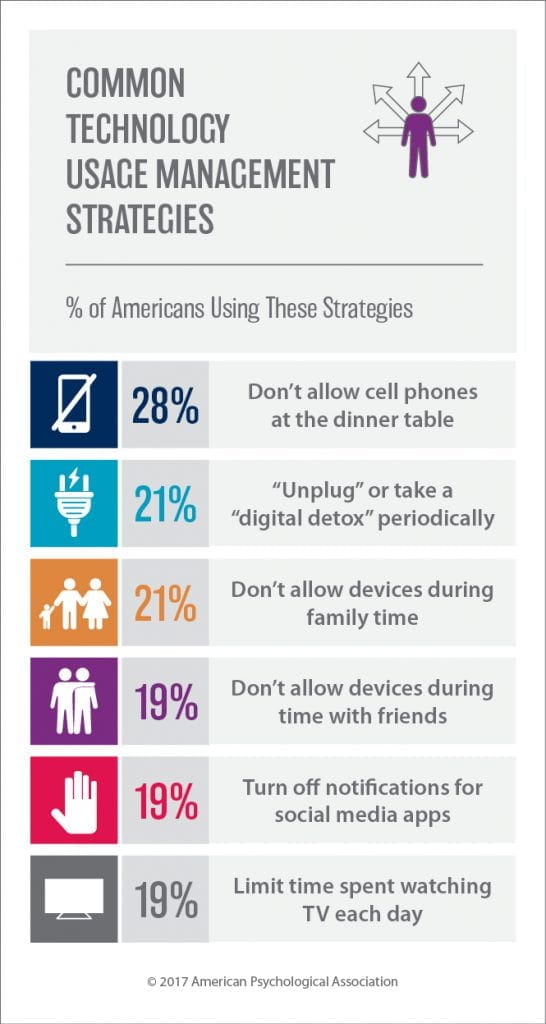Are you one of those people who are constantly checking your smartphone, scanning social media channels, checking emails and feel a bit lost if you are not connected? If you do, you are not alone.
Table of Contents
ToggleNew research from the American Psychological Association shows that more than four out of five adults in the US constantly check email, texts and social media accounts.The bad news is that this attachment to devices and constant use of technology is associated with higher stress levels.
Constant Checkers Experience Higher Stress
The survey found that stress levels are higher, on average, for constant checkers than it is for those who engage with technology less frequently. On a 10-point scale, where 1 is “little or no stress” and 10 is “a great deal of stress,” the average reported overall stress level for constant checkers is 5.3, compared with 4.4 for those who don’t check their devices as frequently. Employed Americans who check their work email constantly on days off reported even higher stress levels at 6.0.
“The emergence of mobile devices and social networks over the last decade has certainly changed the way Americans live and communicate on a daily basis,” said Lynn Bufka, PhD, APA’s associate executive director for practice research and policy. “Today, almost all American adults own at least one electronic device, with many being constantly connected to them. What these individuals don’t consider is that while technology helps them in many ways, being constantly connected can have a negative impact on both their physical and mental health.”
APA’s Stress in America survey, conducted over the past 10 years, has examined how stress affects American adults’ health and well-being. The survey was conducted online between Aug. 5 and 31, 2016, among 3,511 adults ages 18+ living in the U.S. by Harris Poll on behalf of APA.
Parents Struggle to Manage Children’s Technology Usage
The survey showed that parents are feeling pressure to balance children’s technology use as it affects family relationships and interaction. While 94 percent of parents say that they take at least one action to manage their child’s technology usage during the school year, for example, not allowing cell phones at the dinner table (32 percent) or limiting screen time before bed (32 percent); almost half say that regulating their child’s screen time is a constant battle.

Additionally, 45 percent of parents said they feel disconnected from their families, even when they are together, because of technology. More than half of parents (58 percent) say that they worry about the influence of social media on their child’s health, both physical and mental.
Effects of Social Media and Need for Digital Detox
Social media also negatively affects a greater proportion of constant device checkers compared with those who do not check as frequently. More than two out of five constant checkers (42 percent) say that political and cultural discussions on social media cause them stress, compared with 33 percent of non-constant checkers. Additionally, 42 percent of constant checkers say they worry about the negative effects of social media on their physical and mental health. This compares with 27 percent of people who check less frequently.
Almost two-thirds of Americans somewhat or strongly agree that periodically “unplugging”, disconnecting from social media, is important for their mental health. However, only 28 percent of those who say this actually take this action.
“Taking a digital detox is one of the most helpful ways to manage stress related to technology use,” Bufka said. “Constant checkers could benefit from limiting their use of technology and presence on social media. Adults, and particularly parents, should strive to set a good example for children when it comes to a healthy relationship with technology.”
For the first time in the survey’s 10-year history, APA released the report in two parts, including this section focusing on stress related to technology and social media.
For additional information on stress, lifestyle and behaviors, visit www.apa.org/helpcenter. Join the conversation about stress on Twitter by following @APAHelpCenter and #stressAPA.





